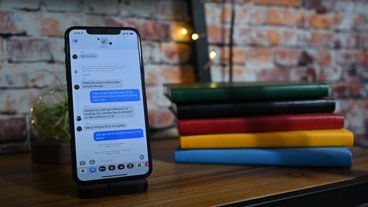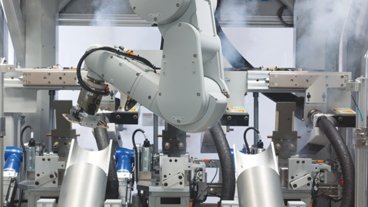TomTom for iPhone lives; Jobs' true health; green iPhone 3G?
Despite reports to the contrary, TomTom is still working on a GPS app for the iPhone. Meanwhile, Steve Jobs' thin look may be permanent evidence of his cancer cure, Greenpeace is concerned about a toxic iPhone 3G. And a growing number of would-be iPhone programers are attacking Apple's backlog in approving their full developer status.
Dutch GPS maker TomTom is still very much involved in developing its own GPS utility for the iPhone, the company's French press chief Yann Lafargue said in an interview on Friday.
Contradicting unofficial reports that the company had nothing official, Lafargue says that TomTom has been developing a version of its Navigator software for the iPhone ever since the release of the SDK and that the software works "very well."
Whether or not it will be releasable is still up in the air, he warns. The company could find itself blocked from offering the software through the App Store either as a potential competitor to Apple's own software or else as a rival to a chosen partner of the iPhone maker.
TomTom doesn't foresee a clause in the SDK guidelines against real-time tracking as affecting its development: Apple is simply protecting itself against legal threats from users who land themselves in trouble using navigation software, the representative claims.
Jobs' thin frame the result of treatment: report
Apple co-founder Steve Jobs' "common bug" and resulting gaunt appearance at this year's WWDC may have been compounded by the steps taken to eliminate his pancreatic cancer years ago, Fortune magazine's Philip Elmer-DeWitt explains.
Jobs is believed to have received a special treatment, known as a Whipple, that cuts off the tumorous part of the pancreas and reattaches the rest to the small intestine while also connecting the bile duct and stomach in a new manner.
This allows the remaining pancreas to perform normally but has a number of potential side effects, according to doctors, including the tendency to lose between five and 10 percent of body mass regardless of the patient's diet.
Crucially, however, the loss is not a sign of a worsening condition. Proper exercise and diet can let these cancer survivors "live a normal life," according to Dr. Dilip Parekh of the University of Southern California.
Apple has never publicly described how Jobs' cancer was cured or whether it would produce adverse reactions.
Greenpeace raises concerns over iPhone 3G
When Apple pledged that it would illustrate its environmental improvements, the assumption was made that this would carry through to every new product. That wasn't the case with the iPhone 3G, Greenpeace tells ZDNet France.
The activist group's toxics campaign head Zeina Al-Hajj notes that Apple has been curiously silent on progress (if any) made in eliminating harmful substances in the new iPhone. It suggests that Apple hasn't evolved its design to be more eco-friendly, she says.
A lack of progress would be worrying to Greenpeace, as the organization found late last year that cabling in the iPhone contained toxic chemicals, albeit in small amounts.
Observers have noted that the iPhone 3G's plastic back is a step backwards in recyclability for the Apple handset, whose shell was originally made of the same aluminum that Apple has touted as being desirable for recycling.
Critics blast Apple's continued iPhone dev program backlog
Over the more than three months since Apple first began accepting applications for its iPhone development program, the company still hasn't shown signs of coping with the large number of applicants., according to observations by Rogue Amoeba's Paul Kafasis.
Although his company has a longstanding history of developing for Macs, it and "a number of other respected Mac software companies" still haven't been accepted as official developers and received the signing certificate needed to test code on an actual device and thus bring the software closer to completion.
The delay would be understandable given unprecedented demand but is simply frustrating given the inconsistency and lack of communication from Apple, Kafasis says. The Cupertino-based electronics maker has so far fast-tracked individual applications while leaving teams at larger companies without answers. Little if any communication arrives from Apple regarding the status of the projects, leaving prospective companies wondering whether they should continue development or back out earlier.
"We don't know if we should invest our time in a platform for which we may not even be allowed to release software," Kafasis says.
 Katie Marsal
Katie Marsal










 Wesley Hilliard
Wesley Hilliard
 Andrew Orr
Andrew Orr



 Amber Neely
Amber Neely

 William Gallagher
William Gallagher







